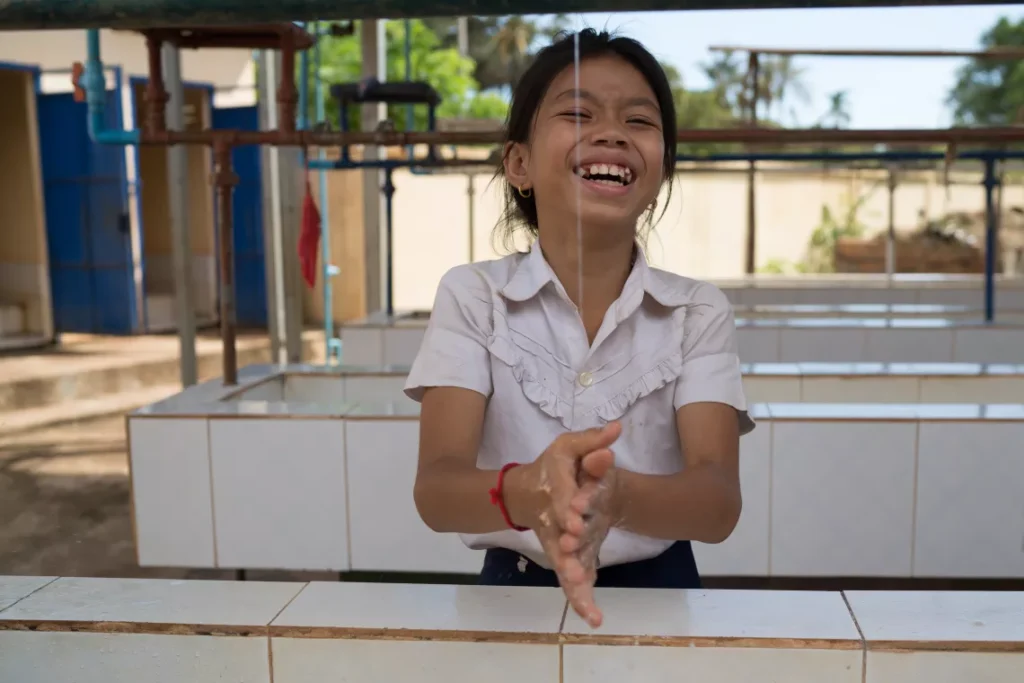UNICEF works in over 100 countries to help provide access to clean water and reliable sanitation, and to promote basic hygiene practices in rural and urban areas, including in emergency situations. We achieve better WASH results for children by:
Empowering communities
UNICEF promotes community-based handwashing through a variety of media and through campaigns like Global Handwashing Day, which reaches hundreds of millions of people every year. Our people-based approach has helped entire communities eliminate the dangerous practice of open defecation, many of whom reached Open Defecation Free status in 2019.
Supporting schools
We work directly with schools and health-care facilities to improve access to basic water, sanitation and handwashing facilities, and to establish protocols for preventing and controlling infections. We support menstrual health and hygiene in schools by constructing private, secure sanitation and washing facilities as well as menstrual pad disposal facilities. We also provide education and support services that help more girls better manage their menstruation cycle.
Humanitarian action
A significant amount of our work occurs in fragile and emergency settings to help prepare for and respond to humanitarian emergencies. This includes transporting water, ensuring it is purified, and constructing toilets in refugee camps and transit centres. We work to construct water and sanitation facilities that outlast the emergency, while providing clear leadership and accountability in humanitarian response.
Responding to COVID-19
In keeping with our Core Commitments for Children, UNICEF has mobilized teams and resources in a global response to the COVID-19 pandemic. We procure supplies for infection prevention and control, and work closely with governments to provide guidance to communities, health-care providers and education practitioners.
Increasing focus on sustainability
We are committed to making all WASH programmes sustainable and adaptive to climate change by the end of 2021. In addition to supporting child-inclusive programmes, in 2019, UNICEF constructed and rehabilitated over 1,000 solar-powered water systems to address increasing water scarcity.
Partnerships
We work in close collaboration with governments, the private sector, academia, civil society organizations, and communities to improve systems and practices that fulfil a child’s right to water and sanitation.



